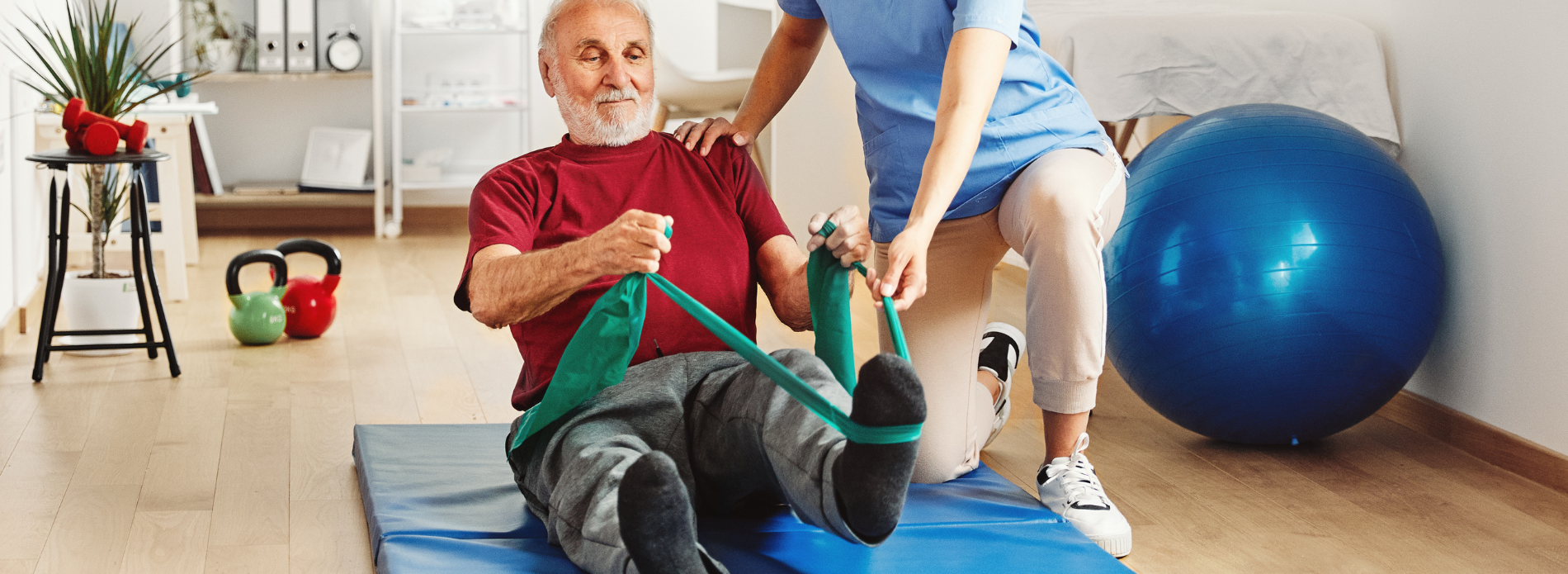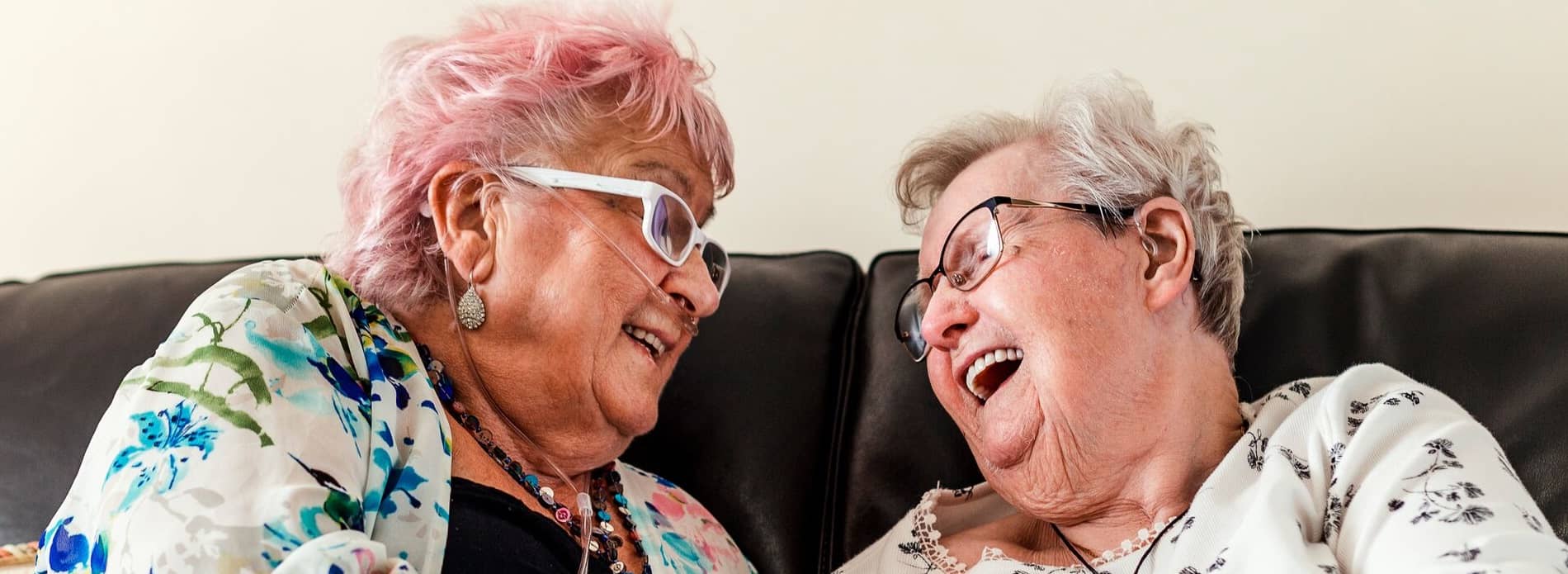If you’re currently juggling dual caring responsibilities – chances are you’re in need of some self-care. While there’s ways to reach out for practical support from organisations to help lighten some of the load, there are also small changes you can make to your routine that can give your mind and body some care and attention, too.
Self-care isn’t selfish. It’s an absolutely necessity for your health and wellbeing – and, as we know, you can’t pour from an empty cup. Here are some self-care suggestions to consider:
1. Ask for help
If you have family who can help share the load, have an open and honest discussion around care needs, financial resources and potential contributions from each member. Identify what only you can do and what others can share or take over.
Regular family meetings can help create a clearer understanding of what’s needed, everyone’s ability to contribute and can reduce potential conflicts in the future. (If family dynamics are complex, consider involving a neutral facilitator.)
2. Seek formal support

Explore your eligibility for practical and / or financial support from the government, your council, as well as social services.
3. Arrange respite care
Respite care provides support for the person you care for while giving you a much-needed break. It can range from at-home care services to day centres to short-term residential care.
4. Speak to your GP if you’re finding caring tiring or difficult
They can give advice and provide support. You may also be entitled to additional health services, such as a free annual flu jab – if the person you care for has a serious or ongoing health condition.
5. Think about small ways you could add some extra movement into your day-to-day

Exercise can help in so many areas of your health and wellbeing, from managing stress and improving sleep, to looking after your heart, muscle and bone health. Could you do some squats while the kettle boils? Use the stairs, rather than the lift? Could you book a lunch time or evening exercise class, and go with a friend for encouragement?
6. Eat food that makes you feel good
Making small changes to your diet and eating patterns can go a long way to increasing your energy levels and generally make you feel happier and healthier. Blueberries, broccoli, melons, carrots, beetroot, Brazil nuts, garlic, and cranberries are great choices.
Find out why > Energy boosting foods
7. Prioritise sleep
Over time, untreated sleep deprivation can result in significant health issues, such as heart disease, high blood pressure, diabetes, mental illness, dementia and weight gain1. It can also negatively impact your mood, causing issues such as a low sex drive and depression2. Try and establish a regular sleep and wake-up routine if you can.
Some helpful sleep tips > Sleep tips for all ages
8. Schedule me-time as non-negotiable blocks in your week
Even if they’re short, they all add up. Setting reminders in your phone can help with this.
9. Build a simple routine for your basic needs

Regular meals, hydration, sleep, and light activity (even a 10-minute walk). Could you ask your partner or a close friend to support you in sticking to it?
10. Use quick regulation techniques
Such as deep breathing, grounding or box breathing.
11. Find a safe outlet
Talk to a trusted person, write in a journal, or dive into a hobby. Let off steam in a way that suits you.
12. Use workplace rights
Discuss flexible working with your employer. Understand your rights to time off for dependants and other family-friendly options.
Read more > Time off for family and dependants
13. Maintain social connections

Even if they’re brief check-ins with friends or support groups (in person or online), these small efforts can ward off feelings of loneliness and isolation.
14. Set boundaries and manage guilt
Recognise your limits and say no when needed; accept help when it’s offered if you can.
15. Create an emergency plan
Have a trusted backup person or contact list for short-term care needs. The load will feel lighter when you feel you’re not the only one that can provide the care required.
16. Keep your own health in check
It’s easy to overlook your health needs but try not to. Schedule regular health appointments, reach out for mental health support if needed, and create yourself a small self-care toolkit you can turn to (e.g. playing your favourite music, running a bath, walking in nature, losing yourself in a hobby).
17. See whether your workplace offers additional support for employees who are carers
For example, at AXA, we have an active caregiver support network, to ensure those with caring responsibilities feel understood, supported and able to thrive. Reach out to your line manager or HR to see if something like this exists in your workplace.
If not, could you have an open conversation with your employer about expanding carer support and awareness in the business? For example, you could discuss introducing things like creating a caregiver support network, establishing internal resource libraries, as well as returning to work programmes that support those resuming work after any caregiving leave. Sensitivity training for colleagues could also be put in place, to ensure a greater understanding by non-caregivers about the challenges working caregivers face.
18. Be kind to yourself
You’re doing your best.
These are just a few self-care ideas that could help improve your physical and mental wellbeing during what is undoubtedly a busy and emotional time in your life. If you’re worried about the impact caregiving is having on you, make sure to discuss your concerns with your GP.
Resources and support
There are a number of fantastic organisations and resources out there that can provide additional support. For example:
- Carers Trust is a charity working with a local network of carers’ centres. They offer support to carers, including information and advice, respite breaks, and training and employment opportunities.
0300 772 9600
info@carers.org
(Not every part of the UK is covered by a Carers Trust Network Partner; if that is the case for you, find other sources of local support.)
- Carers UK provides advice and information to carers, as well as support through local carers’ groups. They can offer practical advice on filling in forms and carry out benefits checks.
0808 808 7777
advice@carersuk.org
- Age UK: Information and advice for people in later life, including ‘Advice for carers: Practical and emotional help when you’re looking after someone.’
0800 055 6112 or fill in this form and someone will get back to you.
- Specialist charities specific to the people you’re caring for. For example, if you’re caring for a parent with cancer, Macmillan Cancer Support can provide a listening ear, additional support, as well as an online community.
- Lottie: A free service that helps families and retirees find the UK's best care homes and retirement living communities.
- Most councils can support with bin collections from outside homes rather than kerbside. This is helpful if you’re not living with your parents/other older relatives or friends, and they’re unable to safely put their bin out. You can usually fill out a form on your council’s website, explaining why they need this service.
- Attendance Allowance helpline. Information and advice if you’ve made a claim for Attendance Allowance: Call 0800 731 0122 or textphone 0800 731 0317.
- Carer’s Allowance Unit. For information on Carer’s Allowance and how to make a claim: Call 0800 731 0297 or textphone 0800 731 0317.
- Citizens Advice. National network of centres offering free, confidential and independent advice, face-to-face or by telephone. In England, call Adviceline: 0800 144 8848. In Wales, call Advicelink: 0800 702 2020.
- There are also some great self-care apps out there, such as:
- Calm: Guided mediations, sleep stories, breathing exercises. Good for stress reduction and sleep.
- Headspace: Structured mindfulness courses, short sessions for busy days.
- Journey: Cross-platform journalling with rich formatting and mood-tagging.
- Happify: Science-based activities to boost happiness and reduce stress.
- BetterHelp: Professional online therapy (paid).
References
- How sleep deprivation can harm your health – Harvard Health
- Why is sleep important? – NHS GP












